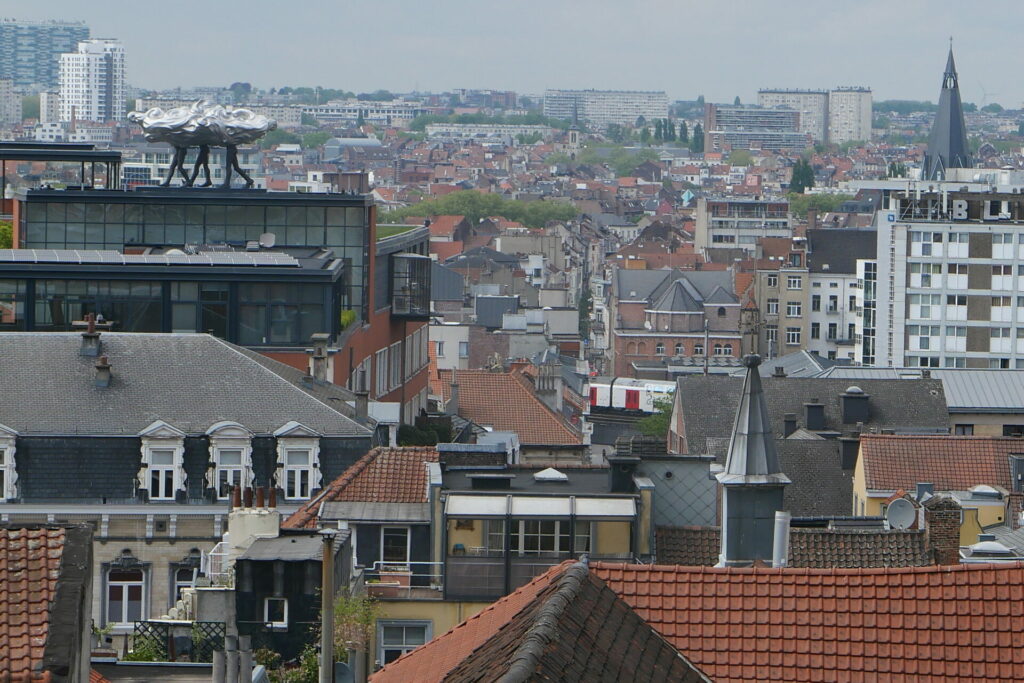Brussels is on the verge of a "small revolution" in the way that properties in the Capital Region are taxed. Not only could the changes simplify the convoluted taxation process, they could become central to rejuvenating neighbourhoods.
Until now, the region has operated with a fixed property tax that is the same for buildings in all locations and all purposes. The system currently in place is based on the region's land register from 1975 and means that a restaurant owner on Grand Place pays the same as the owner of a clothes shop in Flagey or a landlord with three rental flats in a single building in Saint-Gilles.
It's a blanket tax that has long been criticised for its lack of differentiation and unfairness. In response to the concerns, a modernised procedure was presented to the regional government on Thursday by Bernard Clerfayt (Défi) and Sven Gatz (Open VLD) – ministers of Local Powers and the Budget, respectively.
The ordinance passed on the first reading, with ministers apparently eager to adopt a system that will "simplify the fiscal landscape" of the region by providing a more precise instrument that can be adapted according to more local needs.
Streamlining Brussels' tangle of taxes
Without the power to apply targeted property taxes that account for the use of the building or its location, municipalities in Brussels have instead applied various additional taxes depending of the specifics of the property. But this system of applying extra taxes for each individual case has led to a lasagne of charges that owners must pay separately, which also entails a considerable administrative burden.
The new legislation aims to tackle this issue. "We want to encourage communes to drop certain municipal taxes," Clerfayt explained. "Municipalities have been very creative for the last 25 years, adding taxes such as the floorspace of offices, the size of a commercial property, or the number of parking spaces."
These could soon all be part of a more targeted tax that would render many of the supplementary charges obsolete. The ministers estimate that the time savings would amount to saving one full-time accountant per commune.
Whilst the changes shouldn't have an immediate impact on how much tax property owners pay, in the long run it will allow them to address inequalities within certain neighbourhoods without taking heavy-handed measures to influence how a building is used.
Related News
- 'Brussels Paradox': A wealthy region with an 'acute' housing crisis
- Belgium's new tax regime for expats: What changes?
- 'Brussels is beyond repair': Reflections on anarchy and greatness
Local authorities frequently express concerns that some neighbourhoods of Brussels are becoming homogenous, with too many of one type of building whilst others are lacking. For instance, the European Quarter has been singled out as an area that would benefit from greater diversity and efforts are underway to change the makeup of the district and bring new life to a business-heavy quarter.
Whilst direct intervention can build more shops or housing where offices have previously dominated, the change to property taxes would give communes a more gentle lever to stimulate the regeneration of an area without such the heavy investment that goes into major neighbourhood projects.
Clerfayt explains that by allowing communes to set the property tax themselves, they can encourage a certain type of property use through an advantageous tax regime. "For example, they might want to lower the property tax for five years in order to attract new residents or encourage people to renovate their buildings."
The ordinance was adopted on Thursday by the Brussels Government and will now go before the Council of State. Given the initial enthusiasm for the changes as well as the pressure from communes, Gatz and Clerfayt are confident that things will go smoothly, with a parliament vote before the June elections.

